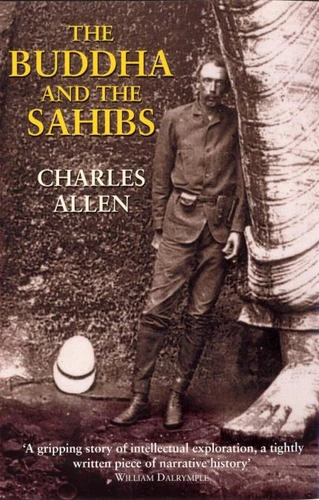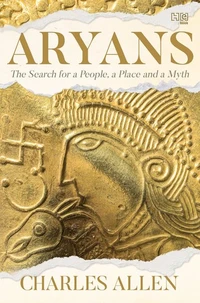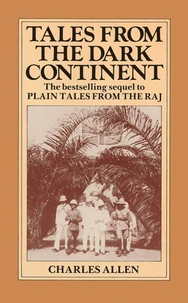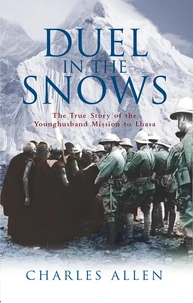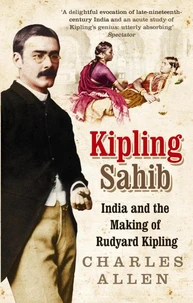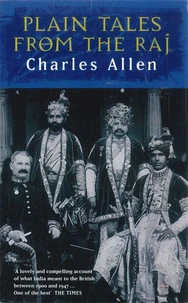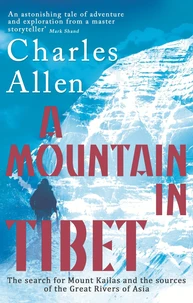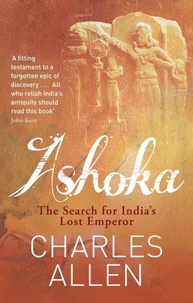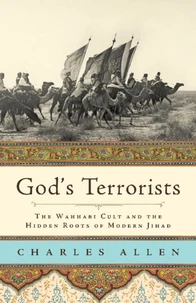The Buddha and the Sahibs
Par :Formats :
Disponible dans votre compte client Decitre ou Furet du Nord dès validation de votre commande. Le format ePub protégé est :
- Compatible avec une lecture sur My Vivlio (smartphone, tablette, ordinateur)
- Compatible avec une lecture sur liseuses Vivlio
- Pour les liseuses autres que Vivlio, vous devez utiliser le logiciel Adobe Digital Edition. Non compatible avec la lecture sur les liseuses Kindle, Remarkable et Sony
- Non compatible avec un achat hors France métropolitaine
 , qui est-ce ?
, qui est-ce ?Notre partenaire de plateforme de lecture numérique où vous retrouverez l'ensemble de vos ebooks gratuitement
Pour en savoir plus sur nos ebooks, consultez notre aide en ligne ici
- Nombre de pages336
- FormatePub
- ISBN978-1-4736-1793-3
- EAN9781473617933
- Date de parution23/09/2015
- Protection num.Adobe DRM
- Infos supplémentairesepub
- ÉditeurJohn Murray
Résumé
Today there are many Buddhists in the West, but for 2000 years the Buddha's teachings were unknown outside Asia. It was not until the late 18th century, when Sir William Oriental Jones, a British judge in India, broke through the Brahmin's prohibition on learning their sacred language. Sanskrit, that clues about the origins of a religion quite distinct from Hinduism began to be deciphered from inscriptions on pillars and rocks.
This study tells the story of the search that followed, as evidence mounted that countries as diverse as Ceylon, Japan and Tibet shared a religion which had its origins in India yet was unknown there. British rule brought to India, Burma and Ceylon a whole band of enthusiastic Orientalist amateurs - soldiers, administrators and adventurers - intent on investigating the subcontinent's lost past. Unwittingly, these men helped lay the foundations for the revival of Buddhism in Asia during the 19th century and its spread to the West in the 20th.
Charles Allen's book is a mixture of detective work and story-telling, as this acknowledged master of British Indian history pieces together early Buddhist history to bring a handful of extraoridinary characters to life.
This study tells the story of the search that followed, as evidence mounted that countries as diverse as Ceylon, Japan and Tibet shared a religion which had its origins in India yet was unknown there. British rule brought to India, Burma and Ceylon a whole band of enthusiastic Orientalist amateurs - soldiers, administrators and adventurers - intent on investigating the subcontinent's lost past. Unwittingly, these men helped lay the foundations for the revival of Buddhism in Asia during the 19th century and its spread to the West in the 20th.
Charles Allen's book is a mixture of detective work and story-telling, as this acknowledged master of British Indian history pieces together early Buddhist history to bring a handful of extraoridinary characters to life.
Today there are many Buddhists in the West, but for 2000 years the Buddha's teachings were unknown outside Asia. It was not until the late 18th century, when Sir William Oriental Jones, a British judge in India, broke through the Brahmin's prohibition on learning their sacred language. Sanskrit, that clues about the origins of a religion quite distinct from Hinduism began to be deciphered from inscriptions on pillars and rocks.
This study tells the story of the search that followed, as evidence mounted that countries as diverse as Ceylon, Japan and Tibet shared a religion which had its origins in India yet was unknown there. British rule brought to India, Burma and Ceylon a whole band of enthusiastic Orientalist amateurs - soldiers, administrators and adventurers - intent on investigating the subcontinent's lost past. Unwittingly, these men helped lay the foundations for the revival of Buddhism in Asia during the 19th century and its spread to the West in the 20th.
Charles Allen's book is a mixture of detective work and story-telling, as this acknowledged master of British Indian history pieces together early Buddhist history to bring a handful of extraoridinary characters to life.
This study tells the story of the search that followed, as evidence mounted that countries as diverse as Ceylon, Japan and Tibet shared a religion which had its origins in India yet was unknown there. British rule brought to India, Burma and Ceylon a whole band of enthusiastic Orientalist amateurs - soldiers, administrators and adventurers - intent on investigating the subcontinent's lost past. Unwittingly, these men helped lay the foundations for the revival of Buddhism in Asia during the 19th century and its spread to the West in the 20th.
Charles Allen's book is a mixture of detective work and story-telling, as this acknowledged master of British Indian history pieces together early Buddhist history to bring a handful of extraoridinary characters to life.

